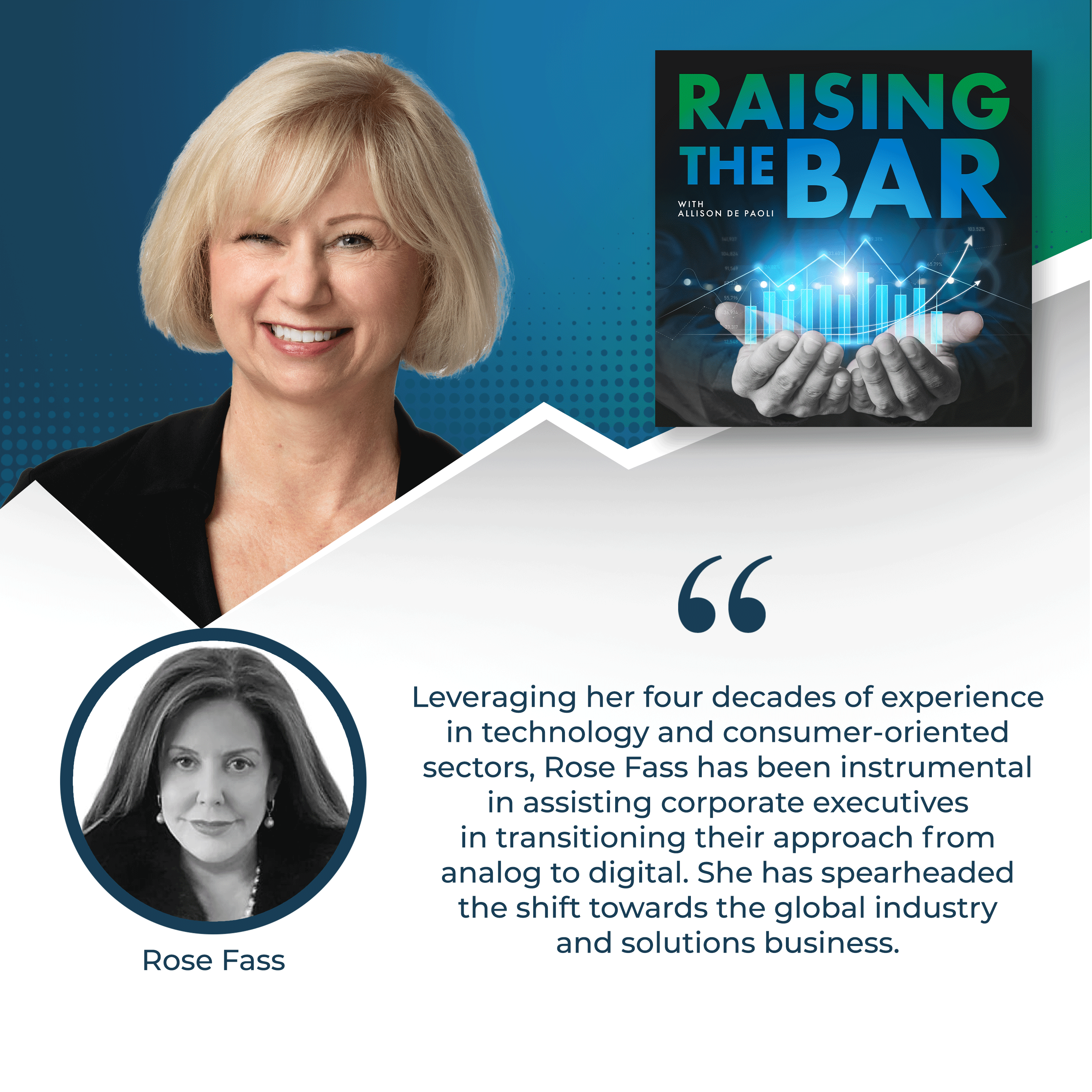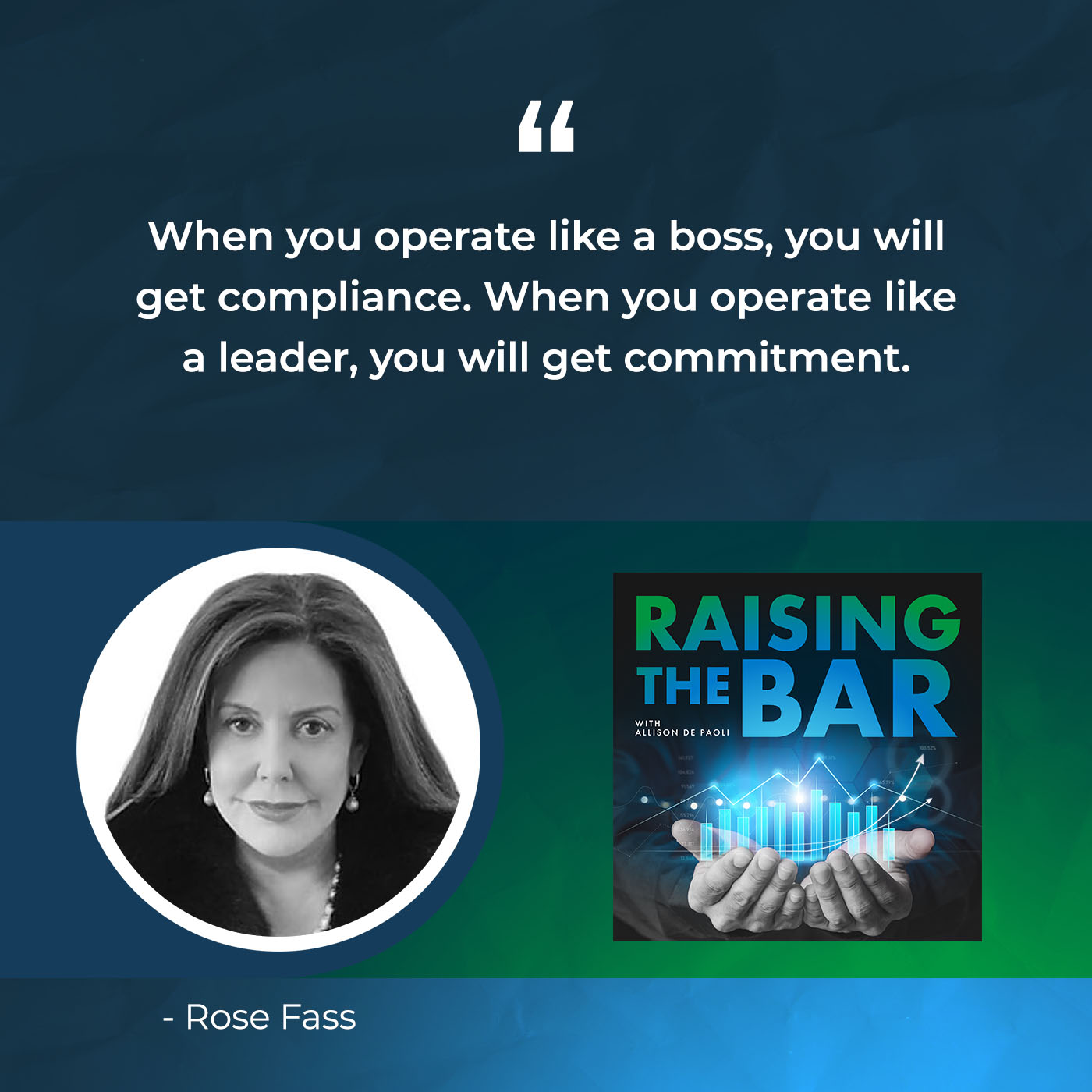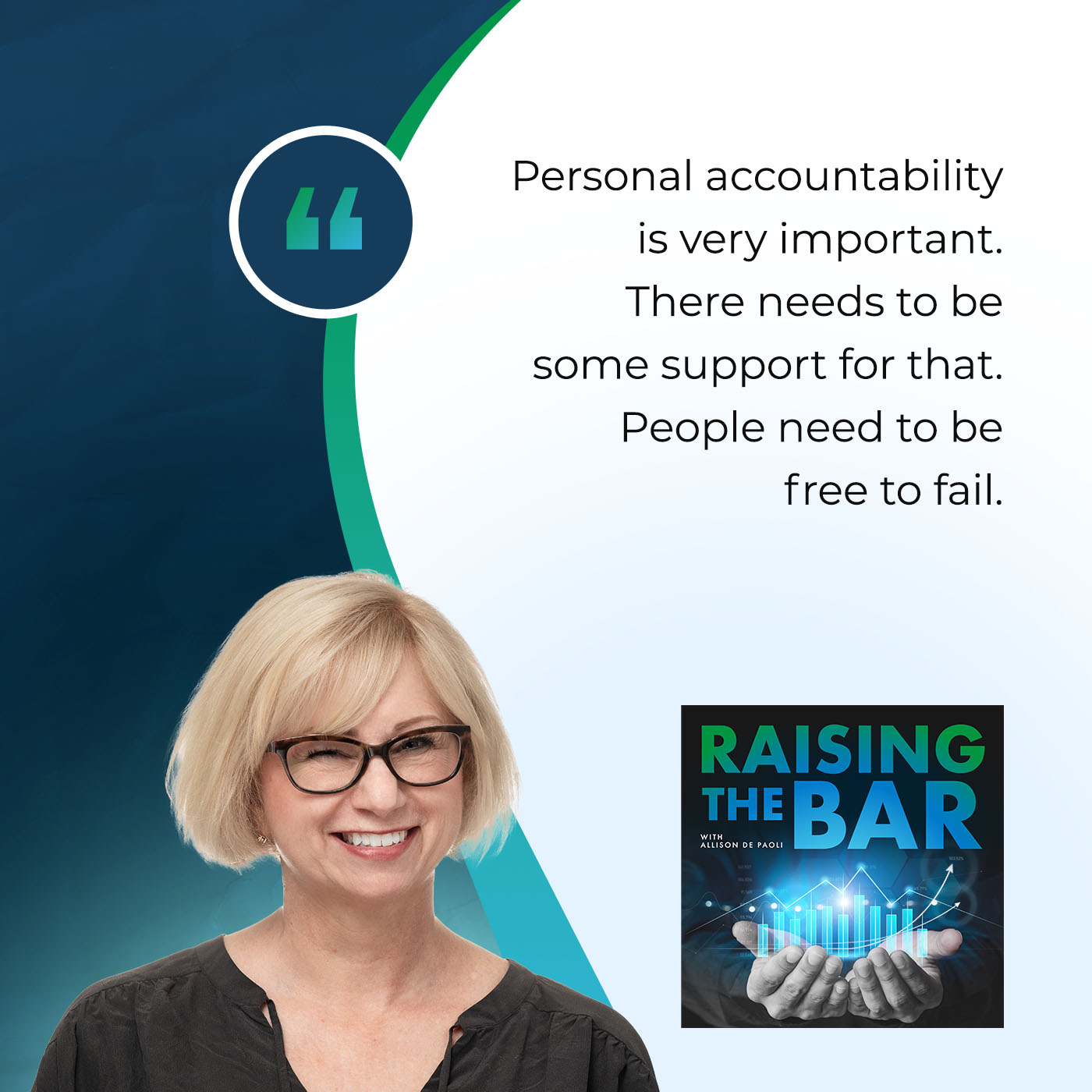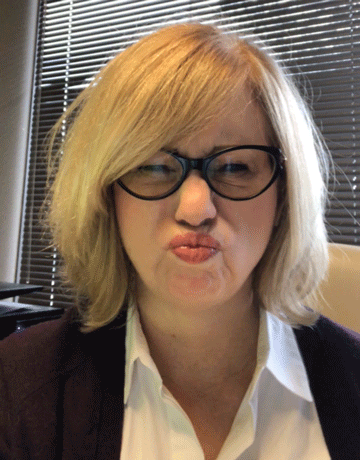
The greatest factor leaders should remember is how they lead a conversation with their team. Through conversation, you can uncover concerns undermining your success. In this episode, Rose Fass, the Founder and Chair of Fassforward Consulting Group, unpacks The Chocolate Conversation as the driving force of a successful business. She compares the power between leading and managing and emphasizes the role of leaders in cultivating a common worldview, setting standards and goals, and uncovering concerns. Rose also reveals why the leadership gap grows wider and why your team becomes apathetic. What conversation are you having with your team? Tune in and learn to lead bittersweet change and transform your business today!
—
Watch the episode here
Listen to the podcast here
The Chocolate Conversation: The Driving Force Of A Successful Business With Rose Fass
It is my pleasure to introduce you to Rose Fass, the Founder of fassforward Consulting. She is a very well-regarded author and publisher of two books, The Leadership Conversation and The Chocolate Conversation. We’re going to talk about both of these in this episode, and about going from being in the beauty fashion industry to entering the corporate world to entering the consulting world, and growing your own firm. You’ve had quite a life.
I’m now 74 years old. I’ve had about 42 years in business. The one thing that I say is the asset to being old is that you don’t have to worry about it anymore, seeing something new or not quite understanding. Somewhere along the line in those 42 years, I experienced it either in the beauty fashion industry in the early days or in corporate. Certainly, now I’m working with corporations but I’m not no longer in them, which is nice. I’m in them but not of them is probably a better way to put it.
You’ve charted your own path. One of the things that are quite remarkable to me is even when you were in the corporate world. You were with Xerox for quite a long time. You were quite entrepreneurial while you were there.
Certain people have an entrepreneurial spirit by nature. You do, Allison. I came out of the womb that way. In my early days with my dad and later in the beauty fashion business, I had to build what would’ve been equivalent to a startup when I was with Mary Quant Cosmetics when they launched in this country. I got a lot of early experience with being an entrepreneur. I went to Saks Fifth Avenue right out of college on their executive training program and it was their first foray into Boston.
In a way, it’s another startup. Even though they didn’t know how it was going to go, they were a New York-based store. It was before all the branches came into effect. This was in 1971, early days. I learned a lot and share a lot about my experiences with two women leaders in Saks, and how that whole entrepreneurial spirit lived on even in a very traditional and conventional corporation.

When you moved on to Xerox, you had a couple of very interesting conversations and held your ground pretty well. That also is quite entrepreneurial.
The interesting part was what I was completely unaware of. I had met one of the corporate officers through an ecumenical group that had met at The Lambs Club in New York. It was a group of Jewish, Protestant, Catholic, and everybody. That’s where I met my husband too, oddly enough. When I was about to get married, the person that was running that group got in touch with an officer in Xerox because he was a patron of this thing. He came all the time, a parishioner.
He said to him, “Do you know of any women that are interested in leadership positions? Xerox is going to hire their first women managers and we want to start a fast-track program.” The morning of my wedding, this particular officer, Ron Mercer, God bless him, met me on the patio of the new Canaan Inn where I was getting married. I was sitting there in electric rollers, my whole family was still asleep and drinking coffee. He was talking to me about coming out of the cosmetic industry and joining Xerox.
I couldn’t fathom at that time being with a copier company. Honestly, he said, “You’ll learn great management skills. You’ll be so amazed.” I will say one thing, it was the single best training you could ever have gotten in those days, both sales and management, just overall finance and business acumen. They were phenomenal. I remembered Ms. Janet telling me from Saks that I had to learn the long way home. I learned the long way home effectively at Xerox. Being the only female was one thing. None of the other females had been hired from the outside. I was the only one hired externally.
I was resented tremendously by all of the females that were there and several of the men. As I told the story in The Leadership Conversation, the person who was my boss at the time was anti-Semitic, believe it or not. My husband is Jewish and he decided that he was very unhappy that I got brought in and put upon him. He wanted an internal candidate. He stripped my team of everything good. He gave me the dregs, so to speak.
My first operations review, I was 45 days in my job and I was 29% of plan. That’s how bad it was. All the men were sitting back there, and they all came down from the region and big corporate guys. I am under a microscope. One of them, who they used to call The Iceman, says to me, “How much talent does it take to be 29% a plan?” Everybody was sitting there and I am feeling terrible.
I remember my dad said, “There are two times you can afford to be strong when you’ve got nothing to lose and everything to lose.” I was in both those positions at that moment. He said, “Do you have anything to say for yourself? I didn’t get defensive. I said, “I’ve been on the job for 45 days. We certainly had some challenges. If I were 290% of plan, would you attribute that to my expertise?”
Silence covered the abyss. David Bliss, who later became a mentor and a friend, turned to me and turned to the guys. He said, “She’s making a good point. Do you have a plan for how you’re going to recover, Rose?” I said, “I do,” and then I presented my plan, which they were all very favorable about and the guy who hired me and insisted that I be in the job worked through trying to help me not lose myself based on this gentleman who literally had it out for me. Early days of life.
Can we talk for a minute about how important executive training programs are to developing leadership? I think there are fewer and fewer of them and the leadership of our organization suffers as a result. Also, how important having a mentor is. If you’re a man or a woman, it doesn’t matter. How important that is for the mentor in terms of pulling leaders up, and for the mentee, in terms of finding paths to move forward.
I can’t say enough. Obviously, we’re in that business. We’re doing a lot of leadership development. There are a lot of executive programs out there that are extraordinary, like the Center for Creative Leadership, the stuff that goes on at Wharton. In between those times, there is a need for practical hands-on, “How do I do this differently?”
In the years that I spent in business, I came to grips with this thing called the technical, social, and political spheres. I developed that as a result of a very bad leadership conversation that was going on between our CEO at Xerox and outsourcing vendors and our internal executives that were trying to get him to choose a particular vendor. They were operating 100% on fact and what fact was all about.
What they needed to do is reframe that conversation because this guy wanted to be socially connected to a celebrity CEO, even though that wasn’t the best company to choose for the outsourcing deal. I helped them refrain from that conversation. I remember writing down TSP, Technical, Social, and Political. That moment in Xerox when I was standing in front of that operating group, I had to position my 29% in the right context.
If I had gotten defensive about it and said, “He gave me the dregs and took all my good stuff and gave it to the other guy,” I would’ve lost. By standing firm and asking the antithesis question, which was, “Add a zero to that, would you think I was famous?” I think it made a unique difference. I am now of the belief that there’s a leadership gap. We are experiencing it.
Allison, you and I have spoken. We have experienced it in our government leaders. It’s horrific. All you get is vitriol and people shutting down conversations rather than allowing them to take place. We don’t have it in our institutions. In some cases, it’s lacking in corporations because people are so focused on shareholder value rather than stakeholder value. There is a lot that’s going on now.
It’s more important than ever that people start dealing with this leadership gap and how to lead. There’s a difference between managing work, driving performance, and leading people who are motivated to do something for you. I’ll conclude with this one thought. I had a conversation with one of my CEOs that has just taken on a role and he’s terrific. I said to him, “Remember one thing. When you operate like a boss, you’re going to get compliance. When you operate like a leader, you’re going to get commitments.”

I think it cannot be stated enough. I see that so often among our clients, vendors, and people that perform customer service for our clients. In some instances, people have not been well trained. In some instances, they’re not being well managed. In other instances, they’re not being well-led. I notice a lot less context. People are not good at understanding context. They might answer the very specific question that you asked, but then you have to come back and ask four more because you didn’t get an actual answer. You only got an answer to this narrow little fact. You encounter that everywhere. You have a name for that.
I call it The Chocolate Conversation. Out of college, I had gotten invited to A BYOC and I thought, “Bring your own chocolate. How exciting is this?” I wasn’t a big drinker. Anytime I went to those BYOBs, I hung onto a drink with nothing to say. I felt I’ll have a lot in common. These are chocolate. I baked my killer chocolate cake and I go to this party and I fully expect everyone to think that I’m the biggest thing since nickel bread. I got to this 6-foot-long table laden with the most beautiful chocolate confections that I had ever seen. I put my thing down at the end of the table because it wasn’t anywhere near all the beautiful things I was looking at.
I realized I’m in a group of a lot of chocolate snobs here. I was talking with this guy and he said, “I could eat chocolate no matter where it comes from or how it comes from.” He is going on and on. There’s this very thin woman who was the woman that you look at and you say, “Does she even breathe?” She came over and started talking to us about how she only savored the best chocolate. If she was going to eat it, it had to have a certain percentage of cacao and it would be dark. I’m looking at this guy and he is looking at me and he goes, “When I’m dying for a chocolate, I just eat a Snicker bar.”
She didn’t love that. She walked away. Years later, I was sitting in an all-company meeting at Xerox when we were changing from the copier company to the document company. There was no context, as you put it. In your words, Alison, we needed to raise our bar because copiers were becoming passé. We had to figure out what we were doing and what we were selling that was going to be a unique value proposition to our clients.
Long story short, we came out o that strategy session and everybody interpreted it differently. We were all hauled back in and reprimanded. I said, “We’re having a chocolate conversation.” I later went on to build that over time and I was invited as a consultant with my partner Gavin in MasterCard. They were trying to stand up a new business. They had the traditional bankers and they had consultants. They called the consultants the big bid opportunity guys and they called the bankers business as usual. The nomenclature had created a major divide.
We got in the room and it was the first time I ever wheeled this out. I said, “Guys, if I say the word chocolate, what’s the first thing that comes into your head?” I got all these different answers, from expensive chocolate in Brazil to ice cream to cake dipped in strawberries. One guy said his Labrador retriever and another guy in the meeting, which would not be allowed nowadays, actually said Halle Berry. I said, “A simple concept like chocolate brings up so many different images and feelings.”
One person said, “I want something that makes me happy.” Another person said, “I won’t be satisfied unless it has a certain amount of cacao percentage.” Another person said, “I thought I was getting cake.” “I thought I was getting ice cream.” “Where’s my chocolate Labrador retriever?” “I thought I had a date with Halle Berry.”
I said, “At the worldview level, we all understand the word chocolate. At the standard level, which is our expectation, the bar we set for ourselves and others, that level, we immediately are very vocal about it.” People’s worldview is not visible, but their standard is. That woman who wanted cacao versus the guy who would take a Snicker, we need to understand that when doing something as complex as a strategy or as you often put it, trying to figure out how the pharmacy is talking to the drug store or the pharmacy to the company of whatever plan they’re on in their medical plans, it becomes what I call a chocolate conversation.
There are three layers to it. The worldview is the chocolate, the standard is the cacao, and the concern is, “Excuse me, I didn’t know. I would never eat a Snickers bar.” Concern is when people have an unmet need. You talked to me a little bit about a story beforehand about a poor person with a migraine who’s suffering in pain and needs to relieve the pain. They’re not complaining. They’re putting forth an unmet need.
Employees are concerned. They’re putting together an unmet need. The pushback on the political system today is an unmet need. You are patrons. We’re the clients. You are supposed to be in service to the American people, people in Britain, or wherever you’re leading. Where are you? You see a guy like Zelenskyy who steps up into his leadership moment. He’s an ex-comedian and no one ever believes that here he becomes the role model for the world because he was there dealing with the concern.
Lastly, I would say that when you start with your worldview, you invite opinion, contrarian opinion, debate, and all the kinds of things you don’t want. When you start with a concern, you get a different response. There’s an opportunity to have a conversation and a dialogue. What I loved about Steven Jobs, even though he wasn’t a role model leader in every instance, nobody knew they needed 1,000 songs in their pocket. Nobody thought they needed a visual voicemail.
This man started with what humans were concerned about and blatantly concerned about. They had not even expressed it because they didn’t know what to express. He went after that and literally created a new standard in the world and industry and reframed everybody’s worldview. That’s the ultimate unpacking of a chocolate conversation. Start with the concern, frame up a new standard, and reframe people’s worldviews.
The ultimate unpacking of a chocolate conversation is to start with the concern, frame up a new standard, and reframe people's worldviews. Share on XYou can only do that by leading and not by managing.
The word managing comes from a Latin word which means to cope. My mother used to say to me, I was like, “How are you doing, Mom?” “I’m coping. I’m managing.” That’s what that meant. Obviously, we have an expanded view of that word now. When you’re managing, you are navigating and manipulating work and you’re in the moment, but you’re getting to plan for a lot of stuff. Managers can’t plan. Leaders like Zelenskyy didn’t get to plan for their moment. Rosa Parks didn’t get to plan for that moment on the bus.
All the great people and the great leaders of our time never got to plan when that moment hit them. They were there and they leveled up. They raised the bar. That’s what this is about. It’s how you find your moment as a leader when you can actually step out of your comfort zone. One of the great ways is to unpack these chocolate conversations because they’re going on all over the place.
We underestimate the power that a chocolate conversation has to cause tension. Maybe that’s a good way to say that. We often don’t address the tension, but by addressing the tension we can diffuse it. It doesn’t have to be ugly. It can be quite calm.
The interesting part is you brought up customer service. We did a lot of work with one of the big phone companies or this wireless company. Literally, the customer service rep gets on the phone to solve your problem because they somehow have to figure out the billing issue or whatever it was, and then at the end say, “Have I solved your problem today?” They had a canned closing script. You’d get customers infuriated. We got brought in and they said, “We want to wow our customers.” I said, “They don’t want to be wowed.”
They want their problem solved.
They said, “What do you mean? We want to delight our customers.” I said, “They don’t want to be delighted. What they want to do is they want to get off the phone and be pleasantly surprised.” You go to motor vehicles and it doesn’t feel like a root canal. I’m pleasantly surprised. They basically want their effort reduced. They want you to solve their problem and not give them homework.
At the end of the day, if you can do that, you don’t have to wow. You don’t have the delight. You don’t have to do any of that. Solve their problem and let them get off the phone without homework, without extra effort, and with the ability to say, “That wasn’t painful. I’m pleasantly surprised.” You know the dread you feel when you’re asked, “Can you call customer service?”
We have an issue right now with one of our clients. I am now in the middle of listening to seventeen recorded calls. I can tell you the customer service team was very nice and empathetic. Too much homework, not enough problem-solving. I had to express that to the management team. You can be clear that there’s a problem. You don’t have to be grouchy, ugly, or loud. You can be clear.
It was like a revelation. I’m like, “It’s not possible that this is a revelation. You record all of these calls.” “No one has ever put it to us that way.” I like to think I’m a special flower, but I’m not. Hopefully, there will be some change there. I see that everywhere. It’s not unique to this vendor. I happened to get to listen to seventeen recorded calls.
That is one of the hardest things to deal with because when you say I’m not a special flower, years ago I was with Stephen Covey himself, not the stuff that’s become off the shelf. He was brilliant. He said one simple thing that I’ll never forget. “Common sense is not common practice.”
Common sense is not common practice. Share on XWe seem to be having more and more challenges that way. When I step out and I look at that, it is very much there is a managerial process about how we are going to handle this. There is no leadership in solving the problem.
It’s not even a process. What’s interesting and I’d like your audience to take this in because I’ve done this now a few times and it finally hits me. The phone company I was with thought they had a lot of processes. What they really had was a lot of procedures. I said to them, “Take three Ps and they’re not the marketing Ps.” Procedure, which is the rule. It tells you what you can and cannot do. Process, which is a legitimate tool. It is the reciprocal relationship between what you want to do and how you can do it effectively and efficiently. Process tells you how to do what to do. Lastly, practice is the last P. That’s what you’re actually doing. You’re in the practice of solving customer problems if you’re in customer service.
What do you use to solve that problem? If you strictly use procedure, procedure should be a guide, not a rule book that stops you from doing what you need to do. Process should be simple enough that it helps you go from A to Z. That’s the thing people fail to realize. I love a good process if it can help me take care of business. There’s an ancient Welch triad that says that when the rules are so invisible, it lends itself to apathy in a country.
Why do rules cause apathy? If you look at a lot of these governments where it is total control and dictatorship and people can’t think for themselves anymore, that’s what we do to these customer service reps. We don’t give them the power and the agency to think for themselves. What do they become? Apathetic. Even though they’re kind and they’re showing empathy, they’re apathetic because they can’t get anything done.
That leads to multiple problems, including turnover, which is a very expensive problem to have.
The leadership gap gets wider and wider because if you want to control, leaders will never have people going through a wall for you and figuring out how to do it themselves. I was doing this on performance and you’ll get a kick out of this. We were asked to help with performance reviews, and why “leaders” were not providing performance reviews. I went and talked about it. Huge amount of work. A lot of documentation. If someone’s not performing, you’re the one that gets put on performance improvement as the manager because they drill you and grill you, and it’s not worth it.
I got to thinking about this. I went back to my little son, who I love and adore. He’s now 38 and very successful. At the time, he was in middle school. He’s getting called back every day after class for not doing his homework. They called it a callback. They’d sit in detention and make him do his homework, and then send him home. I said, “What is with this callback?” I went to a president’s club and my father and mother are watching him. My Marine father calls me up and says, “This is the callback kid. What’s with that broken pencil?”
I thought to myself, he got put in his place by that school and they basically said, “You’re not doing your homework anymore. Callback and you’re going to sit here, then you’re going to go home and get your homework done, You’re going to come back and sit here again.” He thought, “That’s great. I sit here, I get my homework done.” It didn’t work. I thought to myself, “They’re not coming up to his little blue bedroom and helping him out.” Later in high school, we’re not doing that. In college, a professor is lucky if they give you fifteen minutes. You walk in and you are looking for whatever you’re looking for. You have the heavy lift, not the professor.
We get into a corporation and we infantilize them. We give them what my old CEO, Lowell McAdam from Verizon, who I thought was terrific, called learned helplessness. They’re all of a sudden putting you, “What are you going to do to help me get better?” I turned that all around and we changed the whole practice. It’s not the process and not the procedure, but the practice.
You do the performance plan for how you’re going to do better. Bring it to me and make sure you schedule time on my calendar because it’s not my responsibility to schedule time with you. Now, all of a sudden, the accountability is with the person that should be accountable. Come in, bring your plan, sit side by side, not across the desk, and let me see what you got there. I’ll give you my input and see what you think. We’ll negotiate it and we’re done. It changed the game in that company.
Personal accountability is very important. There does need to be some support around that. People need to be free to fail. That’s important. We did a predictive index in our office and nobody was surprised at who was what. It was very helpful in helping us understand how to communicate with each other. I’m not the detail one. If I have to be, I will be, but please don’t make me. It is amazing how much the team has picked up the detail and how they changed how they came to me. It’s remarkable what that did for our productivity.

Everybody has different talents. We all buy into this world with our brilliance in our muddy shoes. We’re not meant to be all things to all people. The important thing is when you give someone ownership for their performance and what they’re doing, you ultimately then become a guide and a mentor rather than the stick and the control freak. It makes a huge difference.
Huge productivity differences and revenue increases as well. I can’t say it enough. We’re a small entity and we see it. We’re very fortunate. We have lovely and wonderful clients and very diverse industries. We see it in every organization where there’s not this tight-fisted control and people are allowed to bring a solution than those businesses that grow faster and more happily.
For both the leaders and the people. If you think about it, leaders are getting a much more expansive scope right now than they used to have if not anymore. The layers below are getting smaller. You don’t wait until the seventh layer before someone touches the work. As one of my chief people officers said to me and I was stunned, “Seven layers before you touch the work.” They are now going to have to let go. Let people do more.
You have a couple of very well-regarded books that we should talk about. One of them is called The Chocolate Conversation.
It’s in its sixth print cycle. This is about leading bittersweet change in transforming your company. It’s all about conversation. I released a book. The early release is already out, but it will be fully released at the end of August. This is about The Leadership Conversation: Make Bold Change One Conversation at a Time.
We saw Zelenskyy do it beautifully. He went to the UK and he talked to them about the Blitz. He went to the United States and he brought up 9/11. He went to different places to explain what it was like for you to have your country under attack. He spoke to everyone listening. I would go as far as to say that not only does leadership happen in the conversation, I think leadership is the conversation.
Not only does leadership happen in the conversation, leadership is the conversation. Share on XIt happens in PowerPoint, text messaging, chats, on the public stage, and when you’re one-on-one with people. At one point, I had one chief people officer who wrote a text to a young lady and a team that had been doing a tremendous amount of work. He wrote, “You rock.” That’s all it was. They were beaming. It doesn’t take a lot of time to do that. You do have to praise and you do have to constructively critique, but you have to do this with balance. Touch and task.
I look at conversations. I said to someone who did a fly-by in the hall, and I say this all the time, “Don’t do that. If someone stops you in the hall and asks you something and you’re not prepared to have the conversation, postpone the conversation. Say, ‘This is too important for me to rattle off something in the hallway. Let me get back to you on this.’” There are no casual conversations when you become a leader. That will get you in trouble.
We see PR nightmares from casual conversations. You can have an informal conversation that is human and makes people feel like they’re human. That’s different, informal than a casual conversation. It’s all in the book. It shares all of this stuff on the technical, social, and political. The last chapter is on civil discourse and the return of it. My dad, may God rest his soul, was a World War II Marine. He was conversant in all of the romance languages and a published poet. He once said to me, “If you have to shout, you cannot hold up your side of the argument.”
You cannot hold up your side of the argument if you have to shout. Share on XWe will leave it with that piece of advice. By the time this episode is published, the book has come out in its final version. I have already read it. I recommend it to many people, not just C-Suite leaders, but people who are leading and growing and leading teams, and even leading your family because that’s leadership too. Very practical advice.
Please connect with me on LinkedIn. I’d love to continue the conversation for any of those out there that want to talk about this and get deeper into it.
Thank you so much for joining me.
Thank you, Allison. It was a pleasure.
For those of you that are tuning in, if you like this episode, leave us a review. Give us a thumbs up. It helps us spread the show and know what to bring you next time. We’ll see you soon. Thank you so much.
Important Links
About Rose Fass
 Rose Fass is the Founder and Chair of fassforward Consulting Group, a leading-edge business transformation boutique. Rose works with executive teams from Fortune 500 companies. Her work delivers thought leadership along with methodologies, and tools that enable clients to address tough challenges, solve complex business problems, execute on their strategies, and deliver bottom-line results.
Rose Fass is the Founder and Chair of fassforward Consulting Group, a leading-edge business transformation boutique. Rose works with executive teams from Fortune 500 companies. Her work delivers thought leadership along with methodologies, and tools that enable clients to address tough challenges, solve complex business problems, execute on their strategies, and deliver bottom-line results.


